by Ken Sehested
The only way I know to pluck from the hearts of enemies their desire
to destroy us is to remove from their lives the sense that, for their own physical
and spiritual survival, they must. —David James Duncan
In the early weeks of 2011, during the Arab Spring uprising, Egyptian blogger Nevine Zaki posted a photograph from Cairo’s Tahrir Square. It showed a group of Muslims bowing in prayer, surrounded by other people standing hand-in-hand, facing outward, a human security wall. Zaki affixed this caption: “A picture I took yesterday of Christians protecting Muslims during their prayers.” [1]
Similar scenes—some ancient, some as recent as yesterday’s newspaper—could be arranged in sundry circumstances with a rotating variety of religious identities. “All have sinned” as the Apostle Paul cautioned—and all can attest to long histories of compassionate episodes and individuals under their banners.[2] Yet such snapshots are uncommon.
It’s partly our own fault, since the “peacemaking” tradition has housed whole communities and scattered individuals  who interpreted faith as a purity code of withdrawal—salvation from the world rather than for it. On top of that, “pacifism” sounds an awful lot like “passivity” despite a lack of etymological connection.
who interpreted faith as a purity code of withdrawal—salvation from the world rather than for it. On top of that, “pacifism” sounds an awful lot like “passivity” despite a lack of etymological connection.
Right: Artwork by Jody Richards. The text is an adaptation by Satish Kumar of a mantra from the Hindu Upanishads and is commonly referred to as the "World Peace Prayer."
You’ve likely seen the classic H.G. Wells movie “War of the Worlds,” released in 1953 during the Cold War amid the fears of invasion—not from alien creatures but Soviet atomic missiles. This is when the U.S. “pledge of allegiance” was edited to include “under God,” when “in God we trust” was legislated as a second national motto and imprinted on all currency. God promotion played a double role: as a rampant tool of national identity and ideological prowess in the shifting geopolitical realities after World War II, and as public relations for the growing corporate resistance to President Franklin D. Roosevelt’s “New Deal” vision of shared prosperity.[3]
In Wells’ movie, when authorities mobilize against the space creatures, all the principle characters are huddled with military leaders in a bunker across the way from the space ships. A debate breaks out over the meaning of this invasion. Some, particularly one minor character, a genteel pastor, argue that dialogue and negotiation come first. Others, particularly the civil and military leaders, argue for the assumption of hostile intent.
As the debate continues, camera angles focus on the clergyman’s unnoticed withdrawal until, suddenly and with much alarm, the gathered defenders spot the pastor walking serenely toward the invaders. He is quoting the twenty-third Psalm with prayerful resolve, masking his own trepidation. Just as he gets to the “Yea, though I walk through the valley of the shadow of death,” one of the alien crafts zaps him with its ray gun.
The message conveyed: Peacemakers may be morally salutary, to be applauded on ceremonial occasions, but are unreliable at best, dangerous at worst, for shaping arrangements in the real world where you get is what you earn and what you make is what you deserve; where the powerful take what they may, the weak endure what they must; where power adheres to those with bigger barns guarded by martial fury.
When former Senator Trent Lott was asked in 2004 about allegations of torture at the infamous Abu Ghraib prison in 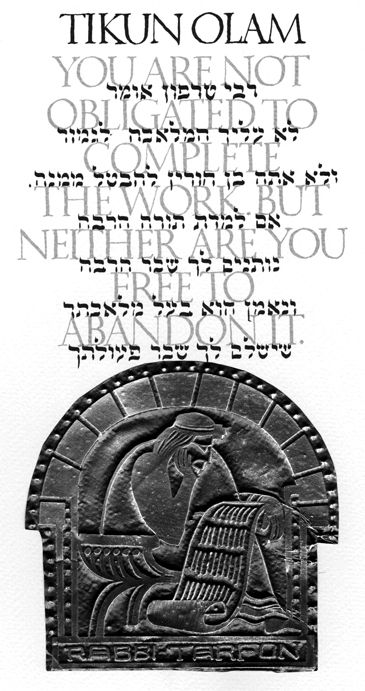 Iraq, Lott responded: “This is not Sunday school. This is interrogation. This is rough stuff.”
Iraq, Lott responded: “This is not Sunday school. This is interrogation. This is rough stuff.”
Is it any wonder that the church’s habit, from the earliest centuries, was to skip over the actual life and teachings of Jesus with a comma (as with the Apostles Creed), bounding from crib to cross to crown in a single sentence? No ink was spilled on Jesus’ encounter with “rough stuff.”
Left: "Tikkun olam" is a Hebrew phrase that means "repairing the world" (or "healing the world") which suggests humanity's shared responsibility to heal, repair and transform the world. In Judaism, the concept of originated in the early rabbinic period. Artwork by Gad Almaliah.
Given the headlines and general obsession with the “war on terror,” especially after the traumatic attacks on 9/11, our post-Cold War narrative is the purported clash between a Christian West and an Islamic (mostly Arab) Middle East. We live, supposedly, in a “clash of civilizations” and questions about “why do they hate us?” are usually answered: because of our freedom. Yet ranking politicians across the political spectrum—from former President George W. Bush to current President Barack Obama—insist we are not at war with Islam.[4]
If this is true, though—if the we not at war with Islam—why is it that the last fourteen countries bombed by the U.S. since 1980 are Muslim nations?[5]
§ § §
Memoir
"You've got to be taught before it's too late, Before you are six or seven or eight,
To hate all the people your relatives hate. You've got to be carefully taught."
—lyrics in “You’ve Got To Be Taught” from Rogers and Hammerstein’s musical, “South Pacific”
My first memory of hearing a theological rationale for racial/ethnic/cultural exclusion came from my Mom. In my world, a standard ritual of early adolescent social bonding was the sleepover, inviting a friend to spend the night. The only norm to be observed was letting Mom know a day ahead of time. When I mentioned that Juan Garcia was coming over, a pained expression came over Mom’s face. Juan, a Chicano, and I were going to grow up, buy a Corvette and drive Route 66 like the stars of the popular 1960s TV show. In a deliberate tone she said something like, “You know how God made people of different colors? That was on purpose, and we’re not supposed to mix them up.” I sensed she didn’t believe the theology, though the segregation conviction was real enough.
§ § §
Heightened urgency for interfaith negotiation
Since 2001 the need for examining the antagonistic history across religious boundaries has escalated dramatically—with a special emphasis on Christian-Muslim dialogue. While communal violence by religious majorities like militant Buddhists in Myanmar (Burma) and Hindus in India claim attention in those regions, in the West most attention is to the “Abrahamic” traditions: Judaism, Christianity, and Islam.[6]
Fortunately the dialogue table has been set. In the modern era, interfaith relations were pioneered by the Roman Catholic Church’s Second Vatican Council convocations from 1962-1965. Among the dramatic documents produced was Nostra aetate, a statement affirming the continuing covenant between God and the Jewish people and repudiating the persecution of Jews by Christians.[7]
Though not backed by institutional support parallel to the Vatican, in 2000 the “National Jewish Scholars Project” produced a groundbreaking document titled Dabru Emet (“Speak the Truth”) which speaks constructively to the 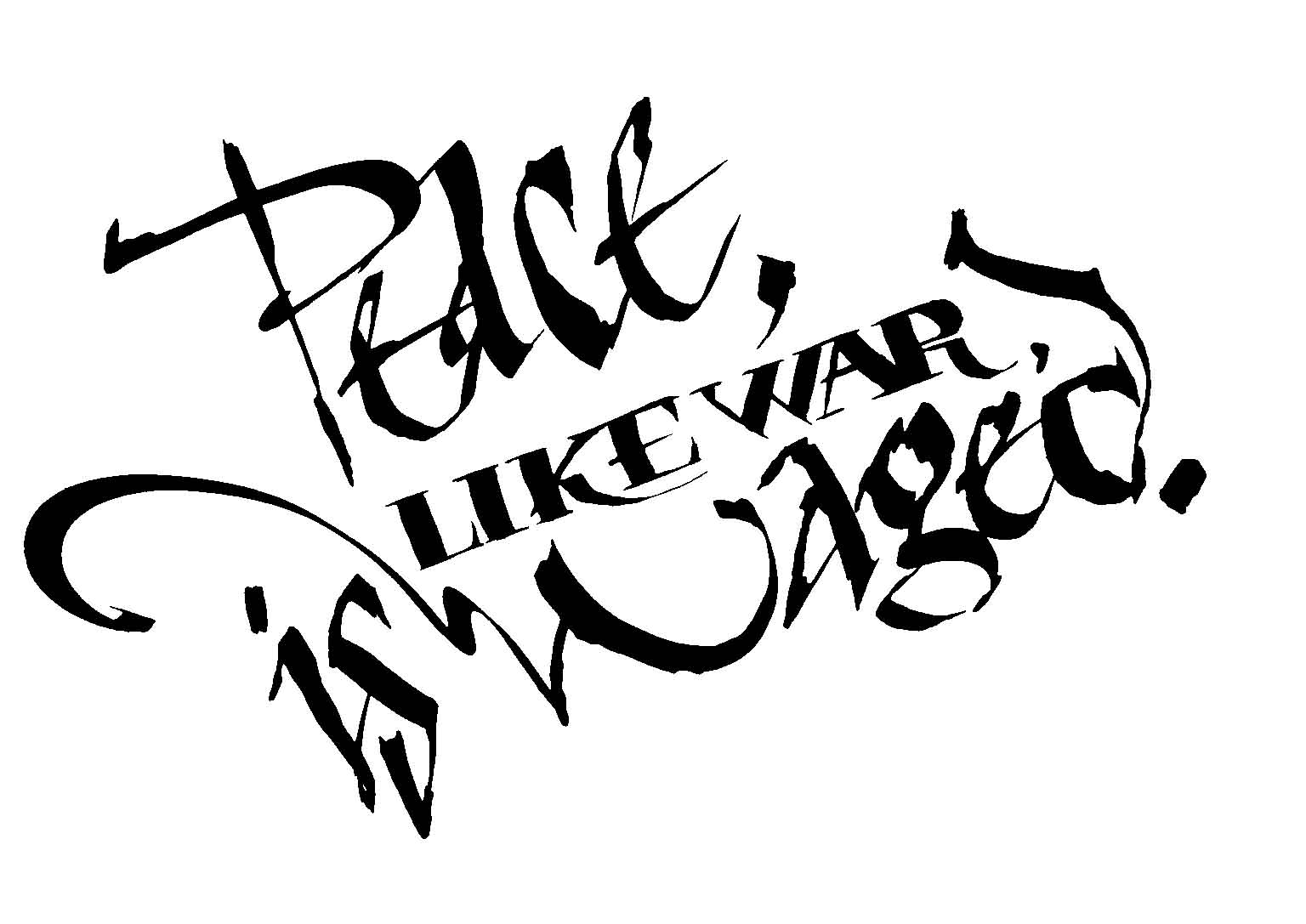 relations between Judaism and Christianity.[8]
relations between Judaism and Christianity.[8]
More recently, leading Muslim spiritual leaders and scholars have produced two documents in the attempt to reach across interreligious fault lines. “A Common Word Between Us and You,” [9] signed by a diverse group of 138 leading figures in the Muslim world, has galvanized global attention with a carefully crafted statement identifying common ground for Christians and Muslims based on a shared reverence for Jesus’ response (found in each of the Synoptic Gospels) to the question about which law is greatest. His response (which itself is redacted from two texts in the Torah, Deut 6:5 and Lev 19:18) was that “all the Law and Prophets hang on”[10] the dual duty to love God with all your heart, soul and mind and your neighbor as yourself.[11]
The lesser known but more recent statement is the “Marrakesh Declaration,” produced in January 2016 by Muslim clerics and scholars meeting in Morocco, asserting the rights of religious minorities living in Muslim-majority nations. In a bold hermeneutic move the authors base their conclusion by reference to the 1,400 year-old “Charter of Medina” drafted by the Prophet Muhammad asserting protection to all “People of the Book.”[12]
It is stunning to know that in 1980 “the U.S. State Department recorded ‘scarcely a single’ faith-based example on its list of terrorist sponsors,” but by 1998 over half of its list of the world’s most dangerous groups claimed a specific religious orientation.[13] Contrary to Cold War fears of a future without God, we now face a world brimming with gods.
§ § §
Memoir
Life is short and easy to sleep through. Let yourself be disrupted.
Confusion is a grace. Try not to get over it.
—unnamed Salvadoran priest
My first attendance of a Roman Catholic Mass, having been reared in a Baptist-dominated West Texas town, then in South Louisiana, was an interfaith plunge. My best friend invited me. It felt like foreign soil, with exotic sounds and sme lls and visual oddities. I felt awkward, with the standing and sitting, the unfamiliar language (Vatican II’s liturgical switch to English had not yet filtered this far down the bayou), and the call-and-responses which everyone knew but me.
lls and visual oddities. I felt awkward, with the standing and sitting, the unfamiliar language (Vatican II’s liturgical switch to English had not yet filtered this far down the bayou), and the call-and-responses which everyone knew but me.
Strangely, though, there was an appeal. Something about the rhythm, the sound of chanted speaking and singing, repeatedly “crossing” oneself on cue, the going forward for the Eucharist (no one told me I wasn’t supposed to).
Left: Arabic calligraphy translated "In the name of God, Most Gracious, Most Merciful."
“Ecumenical” is defined as relations between different branches of Christendom; “interfaith” denotes relations among different religions. Though a bias is at work, since “ecumenical” is rooted in the Greek oikoumenikos, meaning “the inhabited earth.”
To this day I can feel the crunch of walking on small seashells, which substitute for parking lot gravel in that part of the country. I remember wondering if this was a warning of some sort. Or maybe an invitation.
§ § §
Polarizing debate
The polarizing debate over whether Islam is or is not an intrinsically violent religion disguises the long history of terrorism in the U.S.,[14] particularly the scourge of groups like the Ku Klux Klan.[15] It also obscures the presence in the Bible of “texts of terror”[16] and of modern advocates for a ruthless counter-terrorism policy.[17] Some historians say U.S. Civil War General William T. Sherman’s “scorched earth policy” in his 1864 rampage from Atlanta to Savannah was the first modern instance of “total war” waged against “not only hostile armies, but a hostile people.” Sherman said his purpose was to “make old and young, rich and poor, feel the hard hand of war.” One of his officers wrote that the policy was to generate “terror and grief ” in the families of Confederate soldiers,” and if successful, “it is mercy in the end.”[18]
Terror, as with beauty, is in the eye of the beholder.[19]
Secondly, the debate poses a false dichotomy, with neither end of that spectrum representing an accurate analysis—religious motivation, in varying degrees, being one current in a vortex of determining historical factors.
One bit of historical recovery has been done by political scientist Robert Pape, founder of the Chicago Project on Security and Terrorism, who along with his colleagues have studied every suicide attack in the world (some 4,600) since 1980. He says in the overwhelming number of c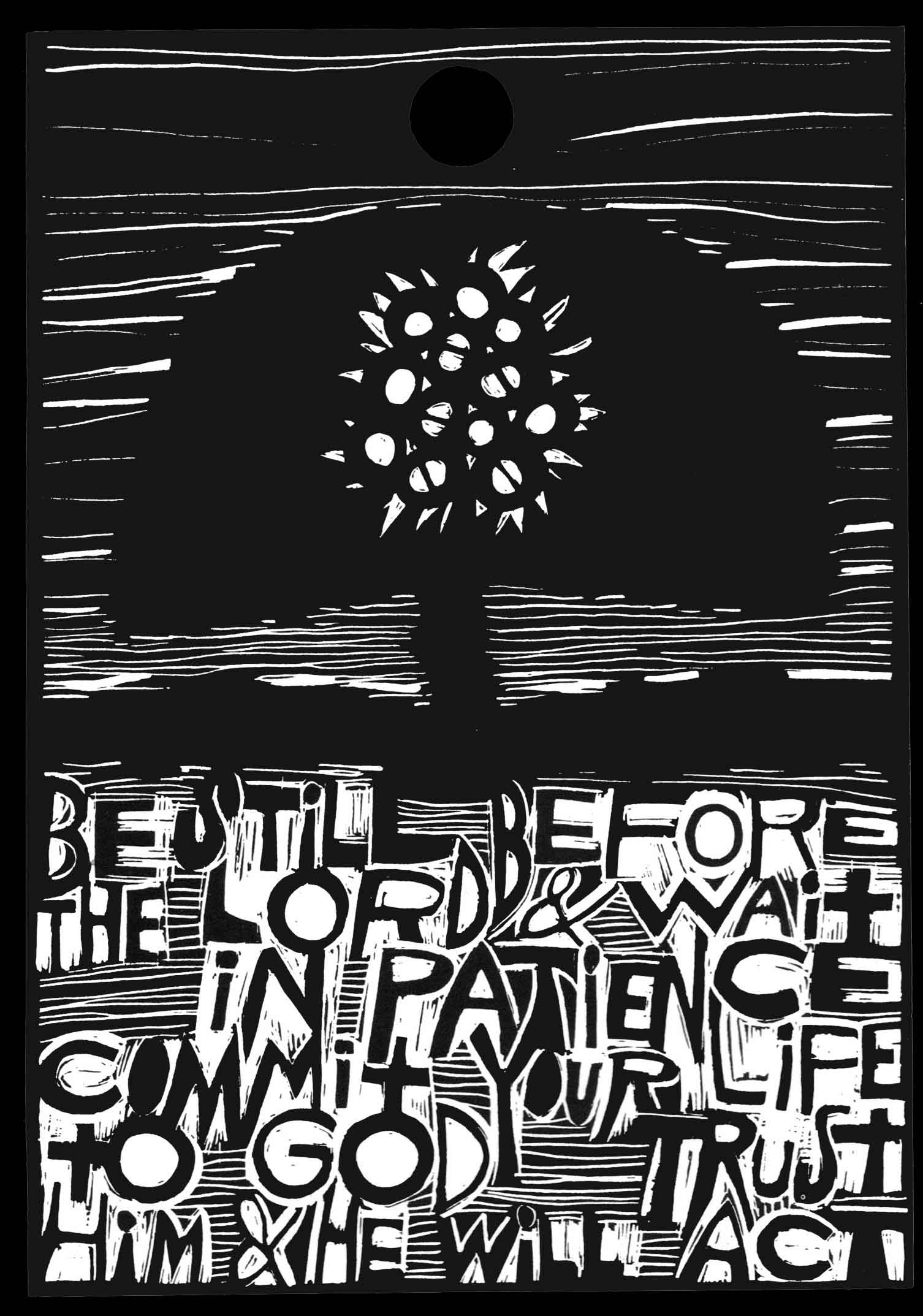 ases, religion is not the primary motive but rather a “strategic motivation to respond to a military intervention,” often a military occupation as well, in places terrorists consider homeland or especially significant to their origins. The role of religious zealotry is for recruitment and a means for overcoming ‘natural aversion to killing innocents.’”[20]
ases, religion is not the primary motive but rather a “strategic motivation to respond to a military intervention,” often a military occupation as well, in places terrorists consider homeland or especially significant to their origins. The role of religious zealotry is for recruitment and a means for overcoming ‘natural aversion to killing innocents.’”[20]
Right: "Be Still" woodcut by Meinrad Craighead, cf. Psalm 37:7.
This much is surely true: The fiercer and longer the historical brutality endured—and trauma very often accumulates over generations—the less aware of the brutality served up in response. As conflict transformation practitioner and theorist John Paul Lederach puts it: “To fight terrorism by military means . . . is like hitting a fully grown dandelion with a golf club.”[21]
Violence is a form of evangelism for the devil.
§ § §
Memoir
“You can tell you’ve created God in your own image when
it turns out that God hates all the same people you do.”
—Anne Lamott
It was a late dinner and debriefing in a downtown hotel in Zagreb, in the newly-minted country of Croatia, following a long and emotional day as part of a Fellowship of Reconciliation delegation. My roommate Charlie and I walked fast so we didn’t miss the last trolley to our lodging in a private home. Soon a stranger caught up to us. A reflective glance made me think “homeless” but also “probably not dangerous.”
Our unknown companion was curious. Recognizing we did not speak his language, he used gestures, trying to ask where we were from, all the while eating the remaining portion of a partially-uneaten sandwich pulled from a city street trash can. He was jovial, and this drew us into an attempted conversation.
“Pennsylvania” and “the United States,” Charlie said. Only the latter seemed familiar. I said “Tennessee.” Nothing registered. Then I had an inspiration.
“Memphis?” I said, as we stopped walking. “MEMPHIS!” he shouted back. “ELVIS!” And he broke into one of the King’s standards as he offered us a bite of sandwich, almost as a communion gesture. Cautious, in a war-weary region with a slightly demented and obviously inebriated stranger, we declined. To this day I second guess that decision.
But the larger decision we made before coming—to accept as an interfaith delegation of Jews, Christians and Muslims the invitation of the Franciscan Abbott of Croatia to plan and lead a service in his Cathedral Church—was never more clear: To declare, as loudly and publicly as possible, that God had nothing to do with the sectarian brutality decimating this beautiful land.
Bosnia, whose human settlements date to the Neolithic age, and whose capital, Sarajevo, had up until the early 20th century been a cosmopolitan city of astounding cultural diversity, where Orthodox and Roman Catholic and Muslim  residents dwelt in relative harmony. The political rifts, now largely conforming to religious identities, still seethed. What argument can counter the claim of anointment, by one god or another, for sectaritan purpose justifying violent means?
residents dwelt in relative harmony. The political rifts, now largely conforming to religious identities, still seethed. What argument can counter the claim of anointment, by one god or another, for sectaritan purpose justifying violent means?
Left: Cross made from shell casings, collected by Ken Sehested in Bethlehem near the Church of the Nativity, West Bank of Palestine.
§ § §
The purpose, promise and peril of interfaith engagement
In Toni Morrison’s novel Beloved, a freed slave, Paul D. tells Sethe, a woman who escaped slavery but cannot escape her haunting memories: “Me and you, we got more yesterday than anybody. We need some kind of tomorrow.” Even ranking military leaders recognize, as former Chairman of the Joint Chiefs of Staff Admiral Michael Mullen said in Congressional testimony, “We can’t kill our way to victory.”
If the effort to foster understanding and relationships across religious lines is to be more than a cosmopolitan hobby, if it is to become a substantial and sustainable movement, expanding the base is essential and must take root in local communities. New strategies and resources are important, as is provoking the kind of imagination that will support creative and costly action. Both these goals require clarifying the purpose and promise, as well as the peril, of interfaith engagement.
The purpose of interfaith conversation is not to have exotic friends or engage in literate conversation at dinner parties. The purpose of crossing these boundaries is to affirm the God of Creation, the God of Humanity, in the face of rampant efforts to debase both creation and humanity—efforts that are generally defended with reference to some divinized “greater good.” Coalitions of religious adherents of every sort are needed to mount resistance to the “myth of redemptive violence.”[22] The fatal attraction to vengeance, that most enduring of human miscalculations, is addressed in one of the oldest stories in written history. Lamech, sixth generation descendent of Cain, vowed: “If Cain is avenged sevenfold, truly Lamech seventy-sevenfold.”[23]
In the history of enmity, there comes a point when no actors can remember the original violation; and thus every act of oppression by one side against another justifies a retaliation, and on and on. A cycle of violence quickly becomes self-perpetuating.
§ § §
Memoir
A Jewish child asks: “When you’re asleep, you can wake up.
When you’re awake—can you wake up even more?”
—Rabbi Arthur Waskow
In early spring 2002 Christian Peacemaker Teams (CPT), an organization committed to nonviolent intervention in situations of violent conflict, called for an emergency delegation to the West Bank of Palestine. Israeli Defense Forces (IDF) had invaded all the major Palestinian towns except Hebron, where an on-going CPT office is located. Hebron’s demographics are a bit different, having Israeli settlements not simply ringing the town but also one in the middle of the city, each heavily armed. A major influx of IDF could easily ignite a conflagration impossible to manage.
Much of CPT’s work involves documenting human rights abuses (another CPT office, in Iraq, provided the first reports of torture by U.S. forces at the infamous Abu Ghraib prison) and, specifically in Hebron, accompanying children on their way to and from school, navigating Israeli checkpoints and discouraging harassment from Jewish settlers and soldiers in the heart of the city.
By then the red ball cap worn by CPTers, stitched with the organization’s logo, was an easily identifiable uniform.
On one of our daily walks through the Old City Muslim neighborhood and out to the boundary street separating it from the Jewish settlement, I was hit in the leg by something behind us. I turned around and saw a young boy, around the age of seven, with arm already hurling a second rock. A nearby Israeli soldier, who had seen the incident, began yelling at the boy who scampered away.
Minutes later we rounded a corner, walking on the mostly abandoned sidewalk (this was Sabbath) near the settlement’s entrance, when we approached three early-adolescent girls, walking on the street. As they passed us, one of the girls veered in our direction and poured an open carton of milk over our heads. All three burst into the giggling characteristic of young teens everywhere as they ran away.[24]
It’s amazing how quickly spilled milk begins to st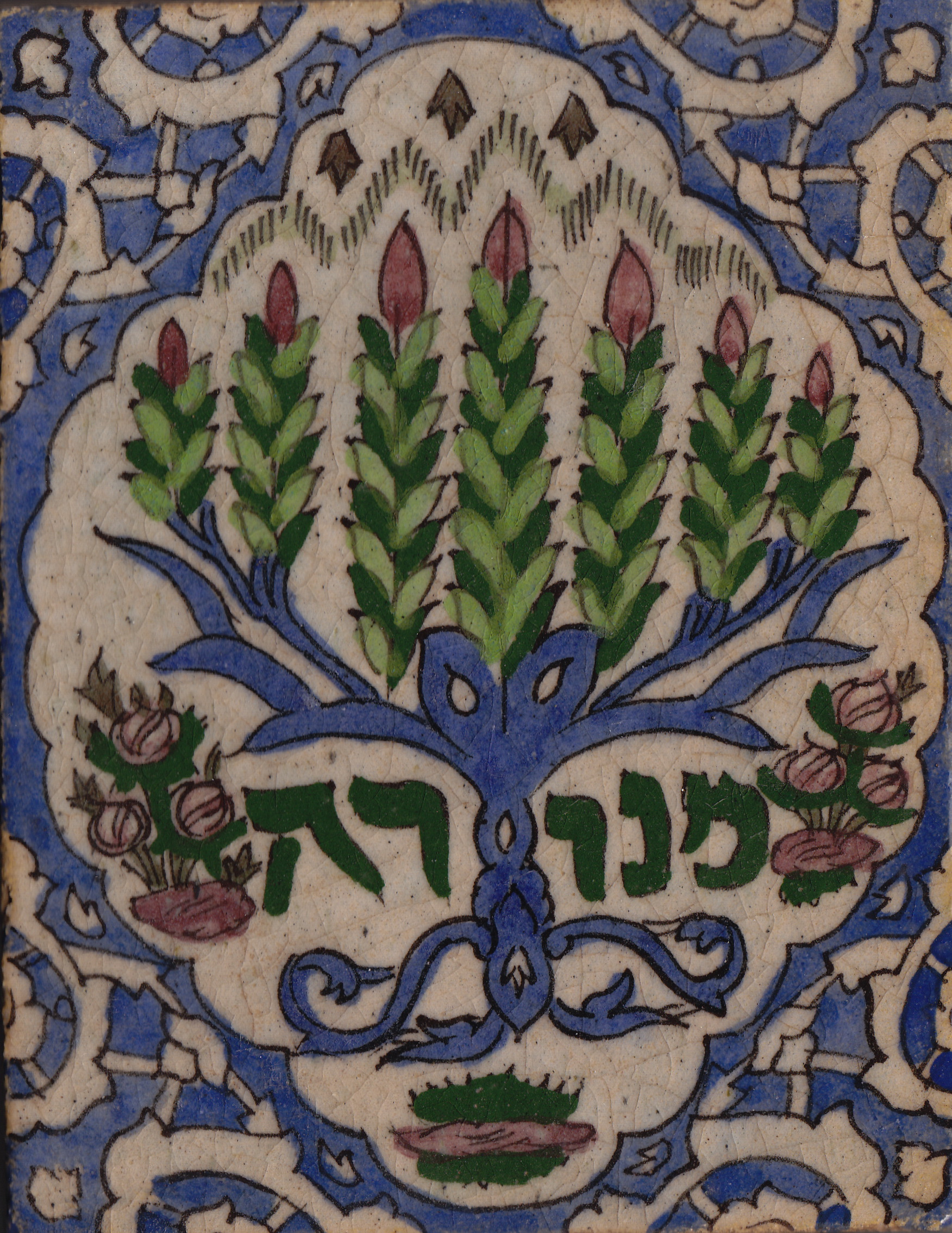 ink.
ink.
More than a decade before an interfaith delegation to Iraq (prior to the Gulf War) requested to meet with Iraq’s foreign minister and spokesman for Saddam Hussein’s government. But when alerted that a rabbi was among our delegation, the rabbi was excluded. We called his bluff. And won.
Later in that trip, in a conversation with a prominent imam in the city of Basra, I shuddered at the most virulent (barbaric would not be too strong a word) anti-Semitic comments I’ve ever heard.
These memories, from Hebron, Baghdad and Basra,[25] serve as reminders of the depths of our collective agony. (Which isn’t to say the Middle East is the only killing field that merits our attention. Nor are Christian atrocities unremarkable in comparison.) They mock the convivial agreements for toleration and multiculturalism that color so much interfaith polite conversations from upholstered chairs. More is at stake than high-mindedness; more is expected than religious tourism. We’ll not be prepared for this perilous journey short of having some skin in the game.
§ § §
Delegitimizing violence
History is brimming with utopian visions of the beloved community—both religious-based and secular—which when implemented evolved into brutal repression. There is, though, a utopia to which people of faith and conscience are drawn. In the New Testament Jesus returns repeatedly to the centrality of the “Kingdom of God.” I would argue that the distinguishing factor between the two is a commitment to nonviolence. I would also argue that the point of departure for honest and effective interfaith collaboration is the urgent need to delegitimize violence done in God’s name.
Besides saying no to religiously sanctioned violence, interfaith groups also need to promote the policies of justice that prepare the ground for a harvest of peace,[26] that serve the common good rather than the “greater good.” Only a politics of forgiveness and human dignity has the power to free the future from being determined by the failures of the past, to make space for hope.
Conflict mediation specialist Byron Bland writes that two truths make healthy community difficult: that the past cannot be undone, and the future cannot be controlled. However, two counterforces address these destructive tendencies: the practice of forgiveness, which has the power to change the logic of the past; and covenant-making, which offers stability in a ruthless world.[27] A third counterforce calls out to be deployed: the exhilaration of the usefulness of human difference.
Religious communities have unique resources for developing politically realistic alternatives to policies of vengeance and to shape civic discourse in ways that free communities and nations from cycles of violence. When faith communities acknowledge one anothers' gifts, the whole is greater than the sum of its parts.
Interfaith dialogue too often presumes that for progress to be made, distinctive faith claims must be abolished, distinctive practices muted.[28] Interfaith advocates often seek common denominators in a kind of cultural universalism, becoming culture vultures, picking a little from this tradition, a little from that. Severed from particular disciplines, historic memory and communal commitments, this kind of freeze-dried spirituality offers sugary nutrition that stimulates but cannot sustain potent movements and healthy institutions. Politically speaking, the result of this intellectual fickleness isolates progressives from traditional cultures of faith and from the very communities whose collective weight must be brought to bear on our wanton, promiscuous state of affairs, where vulgar enthusiasm for personal gain forever trumps the commonwealth.
§ § §
Memoir
The Messenger of God (peace and blessings be upon him) said:
When God created the creation, he inscribed upon the Throne, “My Mercy overpowers My wrath.”
—Imam Bukhari and Muslim b. al-Hajjaj ahadith
Like many others following 9/11, we at the Baptist Peace Fellowship were consumed how to adequately and creatively respond. I had earlier developed great respect for Rabia Terri Harris, founder of the Muslim Peace Fellowship, a chaplain, 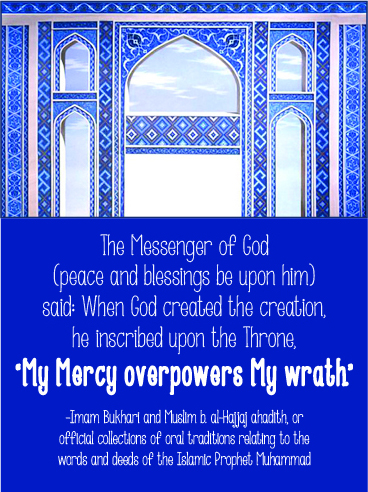 articulate theologian, and now among the leaders of the Community of Living Traditions in Stony Point, N.Y. I called her, hoping to draw on her spiritual depth and insightful thinking. We agreed to meet for a day, together with colleagues. Two projects emerged from that collaboration.
articulate theologian, and now among the leaders of the Community of Living Traditions in Stony Point, N.Y. I called her, hoping to draw on her spiritual depth and insightful thinking. We agreed to meet for a day, together with colleagues. Two projects emerged from that collaboration.
Rabia and I immediately began work on a booklet of quotes from Christian and Islamic Scripture and tradition, published as Peace Primer. The goal was to develop a tool for organizing, encouraging Christians and Muslims in local communities to use Peace Primer[29] as a discussion starter, examining each other’s sacred texts (and probably discovering much in their own tradition as well).
Longer-term, Maso’od Cajee, president of the Muslim Peace Fellowship, along with Rabia and my colleagues Daniel Buttry and Lee McKenna, planned and co-led a series of interfaith conflict transformation trainings in Detroit and Chicago.
When we evaluated our work at day’s end, Rabia said something like the following: I want to express my appreciation for the fact that you [those of us from the Baptist Peace Fellowship] did not try to disguise the fact that you are Christians. Too much of my time in interfaith dialogue is spent with Christians who pretend that no differences exist, that confessional language is neutered and devotional practices are off-limits. It is, she said, a veiled form of arrogance, this preempting of the others’ particular identity. The foundation of any genuine dialogue is to allow the other to be the other while we simultaneously construct bridges leading to common ground and collaborative action.
That does not mean we shall remain unchanged. But we will be pushed to trust that the Center of our adoration, however that reality is named, is greater than the limits of our comprehension. Our yesterdays are in full view, as Jesus understood as he wept over Jerusalem.[30]
In the end, such delight and joy—some say reverence—is the only power that will sustain the risks to be endured, as we learn the things that make for peace.
# # #
Endnotes
[1] This paragraph, and a few other parts of this article, were originally published as “Speak out clearly, pay up personally: The purpose, promise and peril of interfaith engagement” in Lynn Gottlieb, Rabia Terri Harris, and Ken Sehested, Peace Primer II: Quotes from Jewish, Christian, and Islamic Scripture & Tradition (Charlotte, N.C.: Baptist Peace Fellowship of North America, 2012), pp. 65-68. Used with permission of the co-authors and the publisher.
[2] Daniel Buttry’s 3-volume Interfaith Heroes provides a rich collection of brief profiles of individuals, from the multitude of religious traditions, that have acted with courage and compassion in crossing religious boundaries to strengthen their communities, help the needy and make peace. Published by and available from ReadTheSpirit
[3] See especially Kevin Kruse, One Nation Under God: How Corporate America Invented Christian America (New York: Basic Books, 2015).
[4] Though this is also true: “After 9/11, President George W. Bush initially spoke of the ‘war on terror’ as a ‘crusade.’” After he established the ‘no-fly’ zone in southern Iraq after expelling their forces from Kuwait, Bush stated that the bomber pilots “had done the work of the Lord.” See Lee Griffith, The War on Terrorism and the Terror of God (Grand Rapids, MI: William B. Eerdmans Pub Co, 2002), pp. 139-140.
[5] Andrew J. Bacevich, “Even if we defeat the Islamic State, we’ll still lose the bigger war,” The Washington Post, 3 December 2014.
[6] See Bruce Feiler’s Walking the Bible: A Journey by Land Through the Five Books of Moses and Abraham: A Journey to the Heart of Three Faiths.
[7] Subtitled “Declaration on the Relation of the Church with Non-Christian Religions,” Nostra aetate (“In Our Time”) was published 28 October 1965. For a fiftieth anniversary assessment of the document’s legacy, see Junno Arocho Esteves, “’Nostra Aetate’ at 50: The ‘Magna Carta’ of interreligious dialogue,” Catholic News Service
[8] Dabru Emet: A Jewish Statement on Christians and Christianity. The convictions in this document were not shared by all in the Jewish community. One rebuff from the Union of Orthodox Jewish Congregations of America said it “constitutes what Jewish law and theology call avodah zarah, or foreign worship.”
[9] See Miroslav Volf, Ghazi bin Muhammad, and Melissa Yarrington, A Common Word: Muslims and Christians on Loving God and Neighbor (Grand Rapids, Michigan: William B. Eerdmans Pub Co, 2010). The book contains a statement in response from Christian leaders, commonly known as the “Yale Response,” and then from a variety of individual Christian and Muslim theologians.
[10] Found only in Matthew.
[11] Matt 22:34-40, Mark 12:28-34, Luke 10:25-28. Various translations will also add “strength.”
[12] You can read the summary of the Marrakesh Declaration here. Here’s a summarizing news story from Religion News Service.
[13] John Crossan, Jesus and Empire (New York: HarperOne, 2007), p. 192, quoting Mark Juergensmeyer, Terror in the Mind of God: The Global Rise of Religious Violence (Berkeley, Los Angeles, London: University of California Press, Revised edition, (2003), p. 192.
[14] One of George Washington’s southern commanders, Nathanael Greene, wrote of his attack on a Loyalist community: “They made a dreadful carnage of them, upwards of one hundred were killed, and most of the rest cut to pieces. It has had a very happy effect on those disaffected persons.” Lee Griffith, The War on Terrorism and the Terror of God (Grand Rapids, MI: William B. Eerdmans Pub Co, 2002), p. 280, n. 10.
[15] See James H. Cone, The Cross and the Lynching Tree (Maryknoll, N.Y.: Orbis Books, 2011).
[16] See Philip Jenkins, Laying Down the Sword: Why We Can’t Ignore the Bible’s Violent Verses (New York: HarperOne, 2011).
[17] In a 2004 interview, Rev. Jerry Falwell recommended that we “blow them [terrorists] away in the name of the Lord.” (CNN 10.24.04)
[18] “Sherman’s March,” The History Channel.
[19] “According to an FBI report, between 1980 and 2005, only 6% of terrorist attacks were perpetuated by Muslim extremists.” “Non-Muslims Carried Out More than 90% of Attacks in America,” Global Research and “In 2013, according to the State Department’s report on terrorism, there were 399 acts of terror committed by Israeli settlers in what are known as ‘price tag’ attacks.”
Dean Obeidallah, “Are All Terrorists Muslims? It’s Not Even Close,” The Daily Beast and “In the past five years there have been over one thousand terrorist attacks in Europe, but less than 2% of those were perpetuated by Muslims.” Omar Alnatour, “Muslims Are Not Terrorists: A Factual Look at Terrorism and Islam," The World Post
[20] Quoted by Joshua Holland, “Here’s What a Man Who Studied Every Suicide Attack in the World Says About ISIS’ Motives,” The Nation, 2 December 2015,
[21] “The Challenge of Terror: A Traveling Essay,” The Center for Justice & Peacebuilding, September 2001.
[22] Walker Wink, Engaging the Powers: Discernment and Resistance in a World of Domination (Minneapolis, MN: Augsburg Fortress, 1992), p. 16.
[23] Gen 4:24
[24] See Ken Sehested, “House to house, field to field: Reflections on a peace mission to the West Bank,” prayer&politiks.
[25] See Ken Sehested, “Journey to Iraq: Of risk and reverence” and “Caitlin Letters,” prayer&politiks, from a 2003 trip to Iraq, shortly before the U.S. invasion.
[26] Peace work comes in three broad types: Peacekeeping is what United Nations troops do, physically interposing themselves between conflictive groups. (Or a parent, separating fighting children.) Peacemaking is the work of mediating existing conflict. Peacebuilding, which is proactive, involves establishing and strengthening behaviors, policies and institutions which foster social participation, cooperation and justice.
[27] “Creating a Political Language for Peace,” SCICN Working Papers Series, Stanford Center on International Conflict and Negotiation, November 2003, No. 205
[28] Surely one of the thorny issues raised in interfaith communication is the exclusivist claim of faith traditions. As Christians, is it possible to decouple our affirmation of God’s distinctive initiative in Jesus from the imperial implications and justification for bloodletting so many infer from that claim? As theologian John Douglas Hall asks (attributing the thought to Bishop J.A.T. Robinson): Is Jesus the all of God there is? (“Finding Our Way into the Future,” p. 18. )
[29] In 2012 a revision, Peace Primer II, expanded the resource to include all three “Abrahamic” traditions, with the help of Rabbi Lynn Gottlieb, coordinator of Shomer Shalom Network for Jewish Nonviolence.
[30] Luke 19:41-42.
_________________________________________
“The things that make for peace: The purpose, promise and peril of interfaith engagement” was published in Review & Expositor, a theological journal. The Vol. 114, Issue 1, February 2017 issue is devoted to interfaith relations. http://journals.sagepub.com/toc/raeb/current
©ken sehested @ prayerandpolitiks.org


 who interpreted faith as a purity code of withdrawal—salvation from the world rather than for it. On top of that, “pacifism” sounds an awful lot like “passivity” despite a lack of etymological connection.
who interpreted faith as a purity code of withdrawal—salvation from the world rather than for it. On top of that, “pacifism” sounds an awful lot like “passivity” despite a lack of etymological connection. Iraq, Lott responded: “This is not Sunday school. This is interrogation. This is rough stuff.”
Iraq, Lott responded: “This is not Sunday school. This is interrogation. This is rough stuff.” relations between Judaism and Christianity.[8]
relations between Judaism and Christianity.[8] lls and visual oddities. I felt awkward, with the standing and sitting, the unfamiliar language (Vatican II’s liturgical switch to English had not yet filtered this far down the bayou), and the call-and-responses which everyone knew but me.
lls and visual oddities. I felt awkward, with the standing and sitting, the unfamiliar language (Vatican II’s liturgical switch to English had not yet filtered this far down the bayou), and the call-and-responses which everyone knew but me. ases, religion is not the primary motive but rather a “strategic motivation to respond to a military intervention,” often a military occupation as well, in places terrorists consider homeland or especially significant to their origins. The role of religious zealotry is for recruitment and a means for overcoming ‘natural aversion to killing innocents.’”[20]
ases, religion is not the primary motive but rather a “strategic motivation to respond to a military intervention,” often a military occupation as well, in places terrorists consider homeland or especially significant to their origins. The role of religious zealotry is for recruitment and a means for overcoming ‘natural aversion to killing innocents.’”[20] residents dwelt in relative harmony. The political rifts, now largely conforming to religious identities, still seethed. What argument can counter the claim of anointment, by one god or another, for sectaritan purpose justifying violent means?
residents dwelt in relative harmony. The political rifts, now largely conforming to religious identities, still seethed. What argument can counter the claim of anointment, by one god or another, for sectaritan purpose justifying violent means? ink.
ink. articulate theologian, and now among the leaders of the Community of Living Traditions in Stony Point, N.Y. I called her, hoping to draw on her spiritual depth and insightful thinking. We agreed to meet for a day, together with colleagues. Two projects emerged from that collaboration.
articulate theologian, and now among the leaders of the Community of Living Traditions in Stony Point, N.Y. I called her, hoping to draw on her spiritual depth and insightful thinking. We agreed to meet for a day, together with colleagues. Two projects emerged from that collaboration.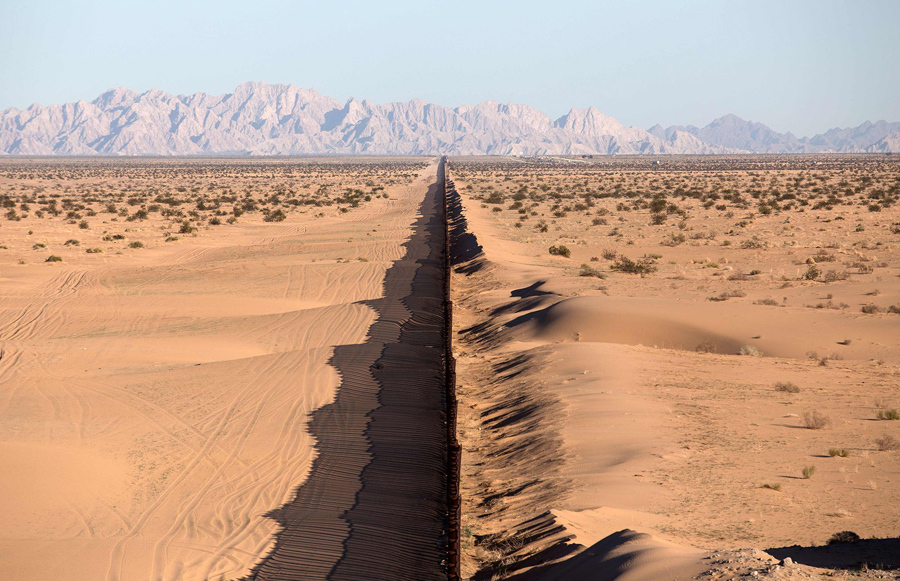
 ¶ Remembering Berta Cáceres, Honduran environmental leader. “On March 2, 2016, Berta Cáceres was murdered by the national and local Honduran government and a multinational dam company, with at least the tacit support of the US. Last September, all the evidence Cáceres' family had collected over many months was stolen. The government has also refused to share information with the family and to allow independent parties like the Inter-American Commission on Human Rights to help with the process.” —
¶ Remembering Berta Cáceres, Honduran environmental leader. “On March 2, 2016, Berta Cáceres was murdered by the national and local Honduran government and a multinational dam company, with at least the tacit support of the US. Last September, all the evidence Cáceres' family had collected over many months was stolen. The government has also refused to share information with the family and to allow independent parties like the Inter-American Commission on Human Rights to help with the process.” —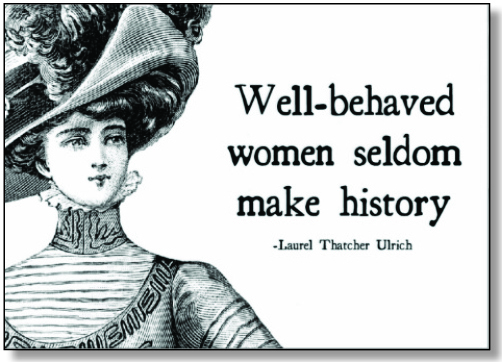 the week of March 8 (International Women's Day).
the week of March 8 (International Women's Day).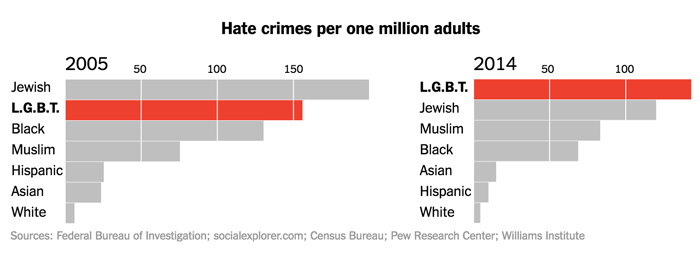 have occurred at four additional mosques. Also last week a gunman shot two Indian immigrants in a Kansas City bar, thinking they were Middle Easterners.
have occurred at four additional mosques. Also last week a gunman shot two Indian immigrants in a Kansas City bar, thinking they were Middle Easterners.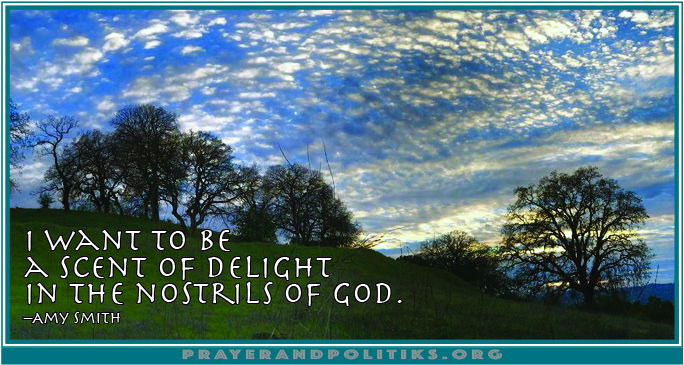 panic would invite? / Person in the street shrugs—"Security comes first" / But the trouble with normal is it always gets worse.” —Bruce Cockburn, “
panic would invite? / Person in the street shrugs—"Security comes first" / But the trouble with normal is it always gets worse.” —Bruce Cockburn, “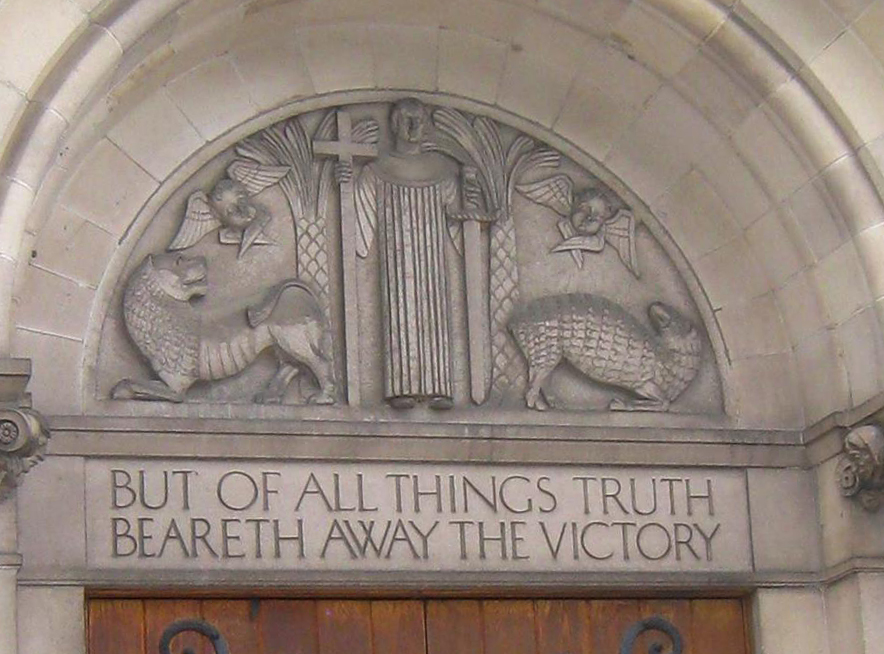
 And so we've created the Matthew 25 Pledge — just one sentence which simply says: I pledge to protect and defend vulnerable people in the name of Jesus.” —make
And so we've created the Matthew 25 Pledge — just one sentence which simply says: I pledge to protect and defend vulnerable people in the name of Jesus.” —make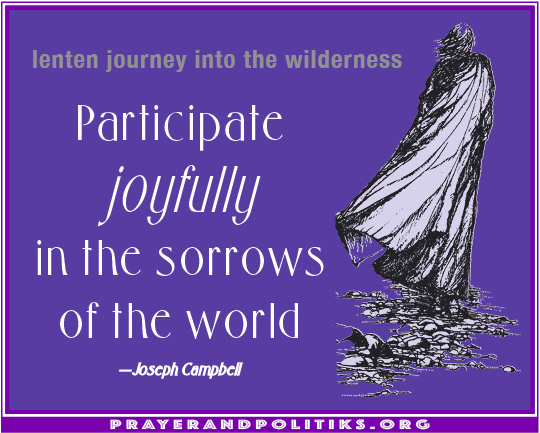 from the Department of Homeland Security’s internal intelligence agency which, in coordination with multiple other intelligence and security agencies, says that Muslim immigrants to the US do not arrive “radicalized.” They have to live in the US for a while before that happens. [Read the last sentence again, slowly.] —see
from the Department of Homeland Security’s internal intelligence agency which, in coordination with multiple other intelligence and security agencies, says that Muslim immigrants to the US do not arrive “radicalized.” They have to live in the US for a while before that happens. [Read the last sentence again, slowly.] —see  ‘Moonlight’ upstages ‘La La Land
‘Moonlight’ upstages ‘La La Land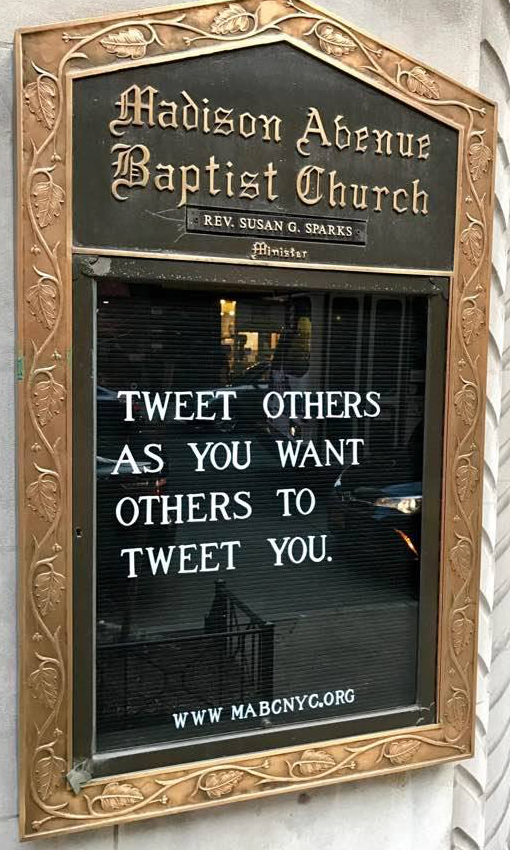 House strategist Steve] Bannon, on the other hand, there is method to the madness. . . .
House strategist Steve] Bannon, on the other hand, there is method to the madness. . . .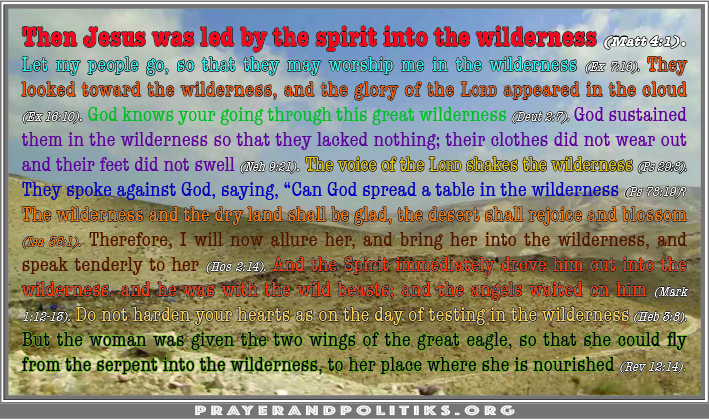 ©Ken Sehested @ prayerandpolitiks.org. Language not otherwise indicated above is that of the editor, as are those portions cited as “kls.” Don’t let the “copyright” notice keep you from circulating material you find here (and elsewhere in this site). Reprint permission is hereby granted in advance for noncommercial purposes.
©Ken Sehested @ prayerandpolitiks.org. Language not otherwise indicated above is that of the editor, as are those portions cited as “kls.” Don’t let the “copyright” notice keep you from circulating material you find here (and elsewhere in this site). Reprint permission is hereby granted in advance for noncommercial purposes.
 immediately acknowledged it was an unusual claim. Not Halloween candy and masquerades, not Thanksgiving turkey and pumpkin pie; not Christmas gifts and visits from Santa; not even Valentine’s Day romance, or Presidents’ Day sales, or chocolate bunnies on Easter, complete with all that good organ music and the onset of spring.
immediately acknowledged it was an unusual claim. Not Halloween candy and masquerades, not Thanksgiving turkey and pumpkin pie; not Christmas gifts and visits from Santa; not even Valentine’s Day romance, or Presidents’ Day sales, or chocolate bunnies on Easter, complete with all that good organ music and the onset of spring. is intimately bound up with the rupture of the world itself. The logic of focused attention to personal repentance is not segregated holiness but public healing, of “the earth and all who dwell therein.”
is intimately bound up with the rupture of the world itself. The logic of focused attention to personal repentance is not segregated holiness but public healing, of “the earth and all who dwell therein.” •of the Abba’s surety of daily bread and multiplied provisions;
•of the Abba’s surety of daily bread and multiplied provisions;

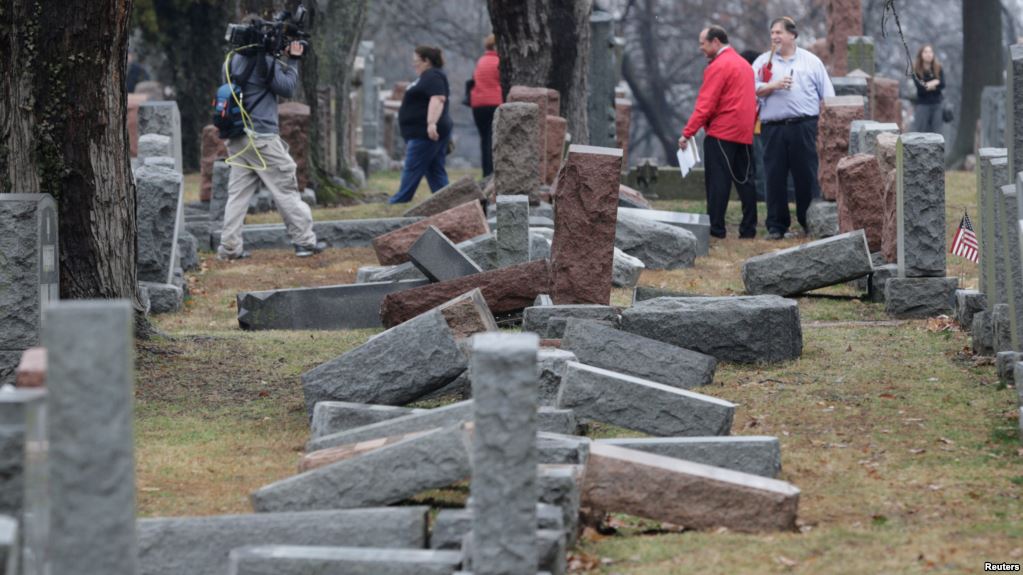 spending 40 days in prayer and self-denial did not arise until later, when the initial rush of Christian adrenaline was over and believers had gotten very ho-hum about their faith.” —Barbara Brown Taylor, “
spending 40 days in prayer and self-denial did not arise until later, when the initial rush of Christian adrenaline was over and believers had gotten very ho-hum about their faith.” —Barbara Brown Taylor, “ seems appropriate that February is when we transition (think detoxification) from the feasting of Christmas and Epiphany to the fasting of Lent. —Malinda Elizabeth Berry, “Walking Toward Possibility,” Sojourners
seems appropriate that February is when we transition (think detoxification) from the feasting of Christmas and Epiphany to the fasting of Lent. —Malinda Elizabeth Berry, “Walking Toward Possibility,” Sojourners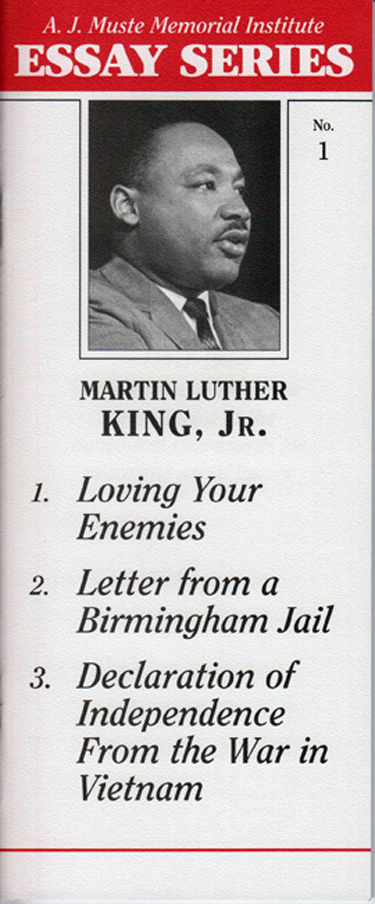 become a bit dreamy in our time, “Beyond Vietnam” puts the bite back into Dr. King’s prophet challenge. The Muste Institute offers a convenient and affordable 48-page pamphlet containing three from King’s writings: “Loving Your Enemies” (sermon); “Letter from a Birmingham Jail” (written while in prison); and “Declaration of Independence From the War in Vietnam” (often titled “Beyond Vietnam: Time to Break the Silence”): $2.00 each or $1.40 for 20 or more copies, postpaid; Spanish language version also available, from the
become a bit dreamy in our time, “Beyond Vietnam” puts the bite back into Dr. King’s prophet challenge. The Muste Institute offers a convenient and affordable 48-page pamphlet containing three from King’s writings: “Loving Your Enemies” (sermon); “Letter from a Birmingham Jail” (written while in prison); and “Declaration of Independence From the War in Vietnam” (often titled “Beyond Vietnam: Time to Break the Silence”): $2.00 each or $1.40 for 20 or more copies, postpaid; Spanish language version also available, from the  especially like: “Finding steady ground: strengthening our spirits to resist and thrive in these times.” It offers seven guidelines, each accompanied with brief commentary, composed to reach the broadest value-based constituency.
especially like: “Finding steady ground: strengthening our spirits to resist and thrive in these times.” It offers seven guidelines, each accompanied with brief commentary, composed to reach the broadest value-based constituency.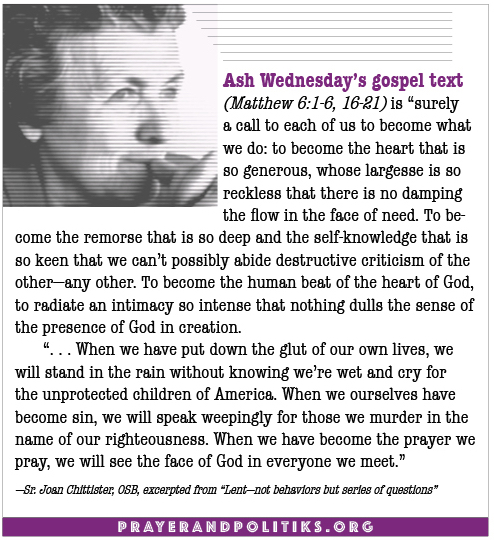 had just been killed when their van went over a cliff. The boy crawled out and went looking for help. Cordova gave the boy his sweater, fed him chocolate and cookies and built a bonfire.
had just been killed when their van went over a cliff. The boy crawled out and went looking for help. Cordova gave the boy his sweater, fed him chocolate and cookies and built a bonfire.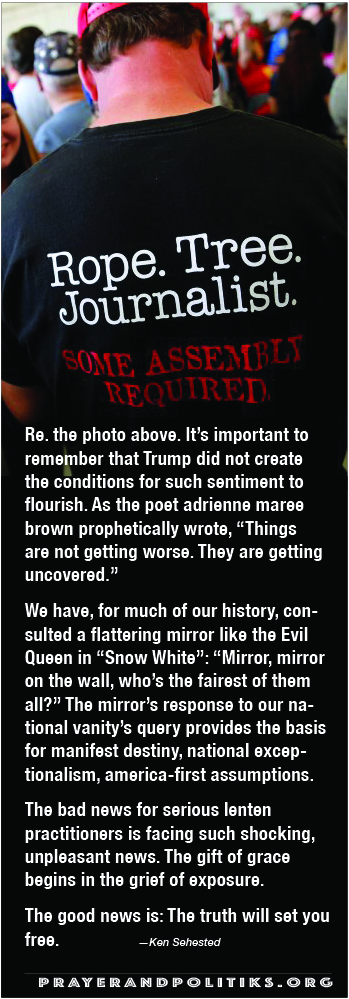 do no good to others, you do nothing great." —John Chrysostom, Christian mystic and 4th century Archbishop of Constantinople
do no good to others, you do nothing great." —John Chrysostom, Christian mystic and 4th century Archbishop of Constantinople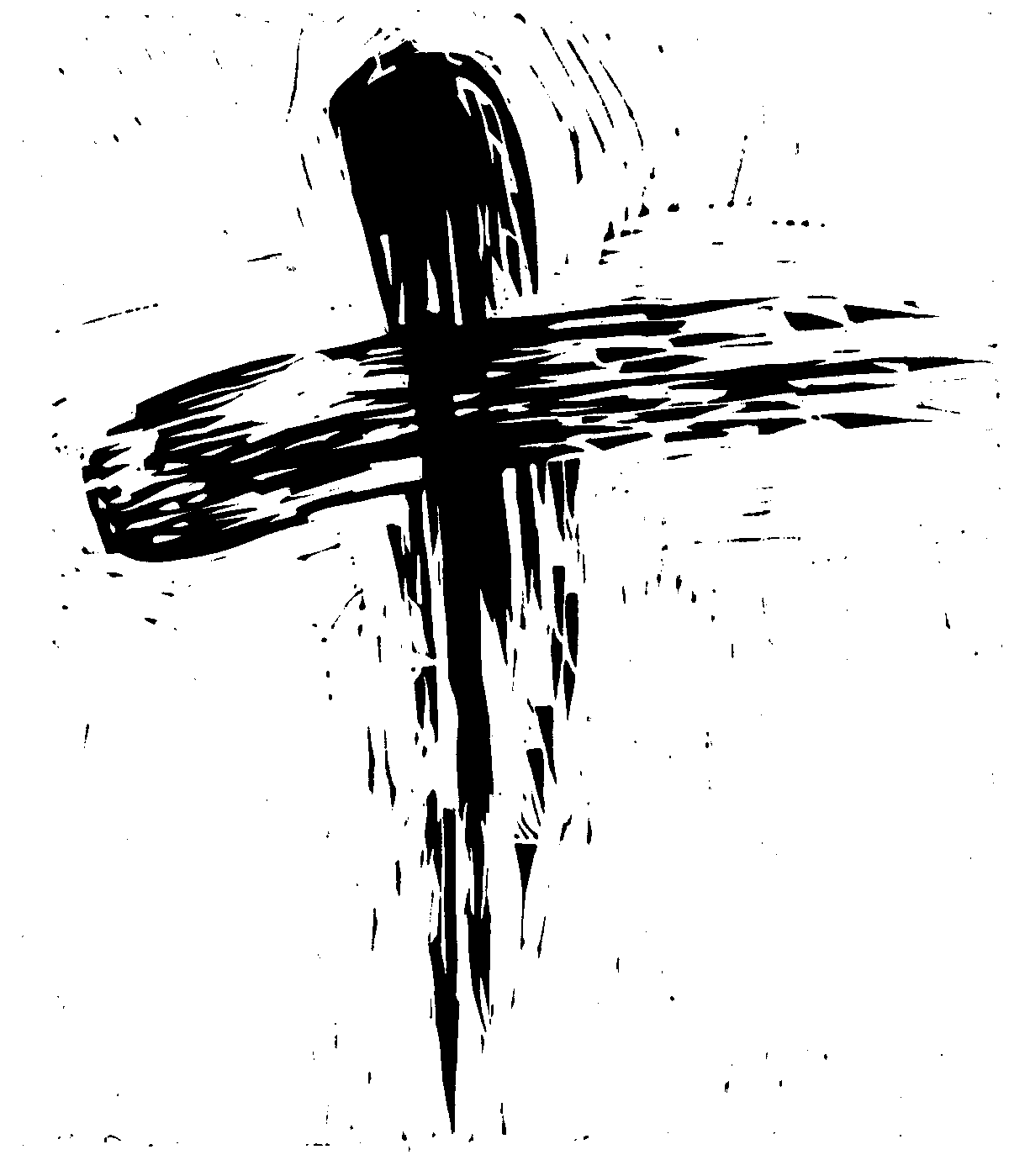

 County’s sprawling foster care system. He has buried about 10 children. Some died in his arms.” —
County’s sprawling foster care system. He has buried about 10 children. Some died in his arms.” — world, voted three times more dangerous to world peace than the next country. —
world, voted three times more dangerous to world peace than the next country. — Qur'an: Islam and the Founders, cited in Elahe Izadi, The Washington Post
Qur'an: Islam and the Founders, cited in Elahe Izadi, The Washington Post  between the religious fundamentalists and the political right. The hard right has no interest in religion except to manipulate it.” —Billy Graham, 1981
between the religious fundamentalists and the political right. The hard right has no interest in religion except to manipulate it.” —Billy Graham, 1981 Russian President Vladimir Putin, calling Putin a “killer,” Trump said “We’ve got a lot of killers. Boy, you think our country’s so innocent? You think our country’s so innocent?”
Russian President Vladimir Putin, calling Putin a “killer,” Trump said “We’ve got a lot of killers. Boy, you think our country’s so innocent? You think our country’s so innocent?”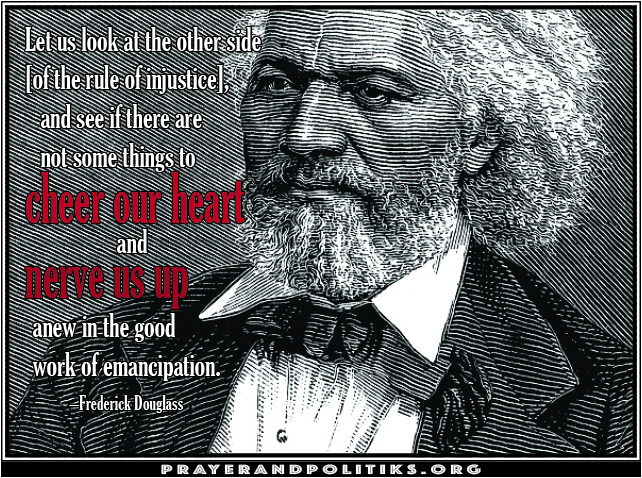 Machines Can’t Be Hacked.” —
Machines Can’t Be Hacked.” —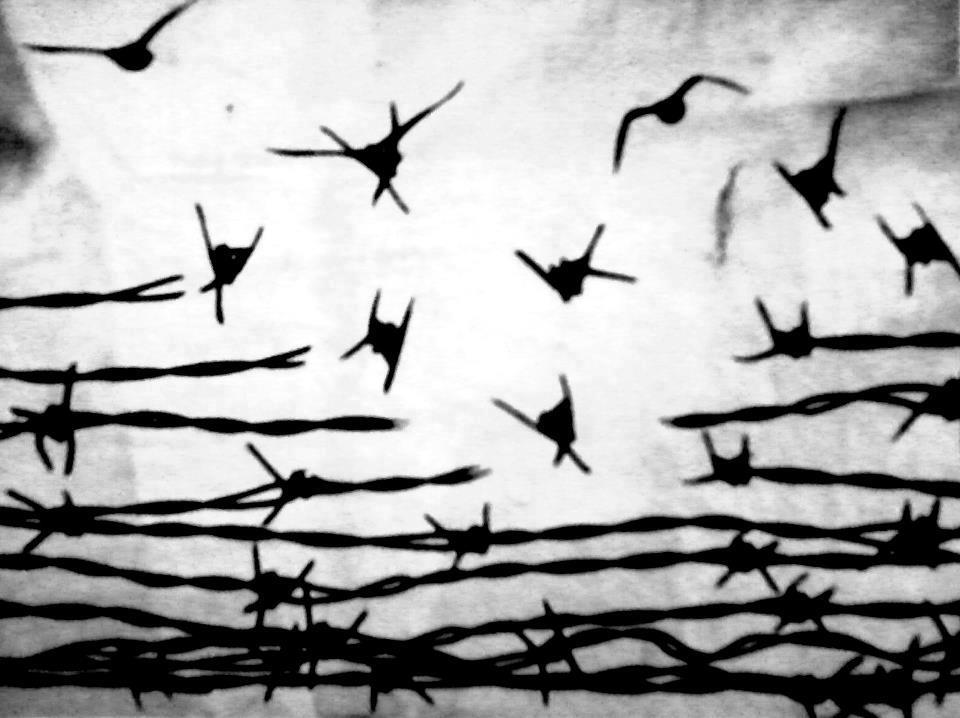 And, in fact, the Virginia legislature explicitly rejected inclusion of language recognizing “Jesus Christ” in the bill. —see Elahe Izadi, “
And, in fact, the Virginia legislature explicitly rejected inclusion of language recognizing “Jesus Christ” in the bill. —see Elahe Izadi, “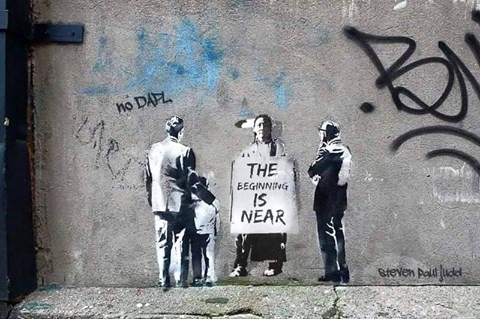 changed his name to Kareem Abdul-Jabbar.
changed his name to Kareem Abdul-Jabbar. another world is not only possible but is actively moving in our direction.” —continue reading Ken Sehested’s “
another world is not only possible but is actively moving in our direction.” —continue reading Ken Sehested’s “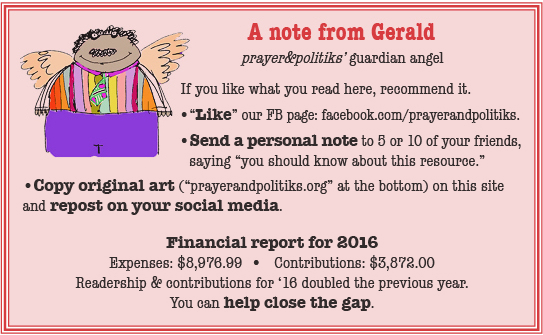 Other features
Other features
 have not disappeared. After more than a century of decline, the number of Black farmers is on the rise.” —
have not disappeared. After more than a century of decline, the number of Black farmers is on the rise.” —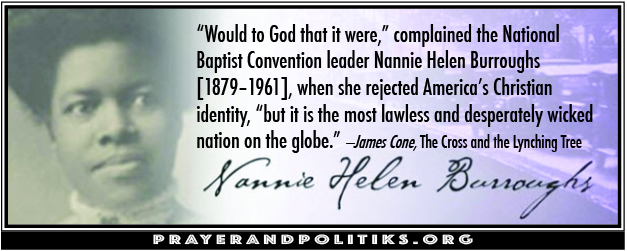 she rejected America’s Christian identity, ‘but it is the most lawless and desperately wicked nation on the globe.’ Lynching, she insisted, was ‘no superficial thing . . . it is in the blood of the nation. And the process of eliminating it will be difficult and long.’” —James Cone, The Cross and the Lynching Tree
she rejected America’s Christian identity, ‘but it is the most lawless and desperately wicked nation on the globe.’ Lynching, she insisted, was ‘no superficial thing . . . it is in the blood of the nation. And the process of eliminating it will be difficult and long.’” —James Cone, The Cross and the Lynching Tree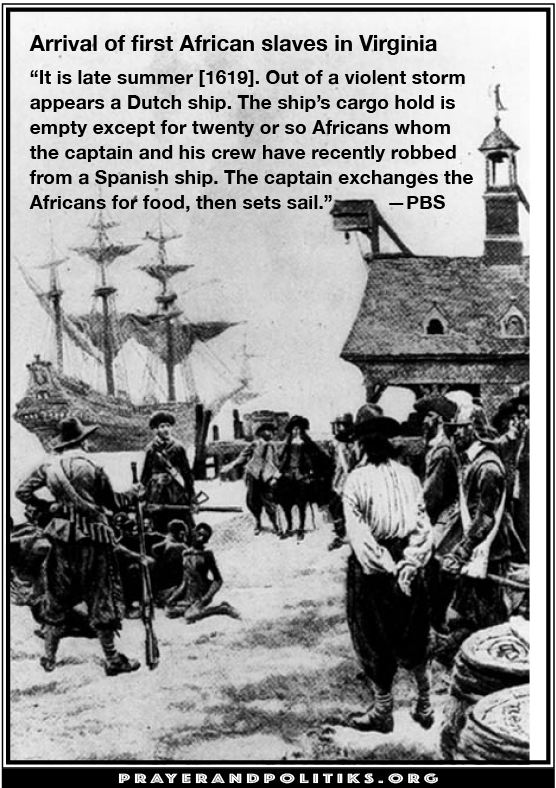 More than one-in-four US presidents were involved in human trafficking and slavery,” including an interview with Dr. Clarence Lusane, author of The Black History of the White House.
More than one-in-four US presidents were involved in human trafficking and slavery,” including an interview with Dr. Clarence Lusane, author of The Black History of the White House. much wealth as their white counterparts hold today. —
much wealth as their white counterparts hold today. — recognizes that while not appearing to.’” [It’s pretty clear now that Southerners weren’t the only ones being wooed. Thanks Bob.] —
recognizes that while not appearing to.’” [It’s pretty clear now that Southerners weren’t the only ones being wooed. Thanks Bob.] — not understand; and until they understand it, they cannot be released from it. —James Baldwin in “My Dungeon Shook: Letter to My Nephew on the One Hundred Anniversary of the Emancipation”
not understand; and until they understand it, they cannot be released from it. —James Baldwin in “My Dungeon Shook: Letter to My Nephew on the One Hundred Anniversary of the Emancipation”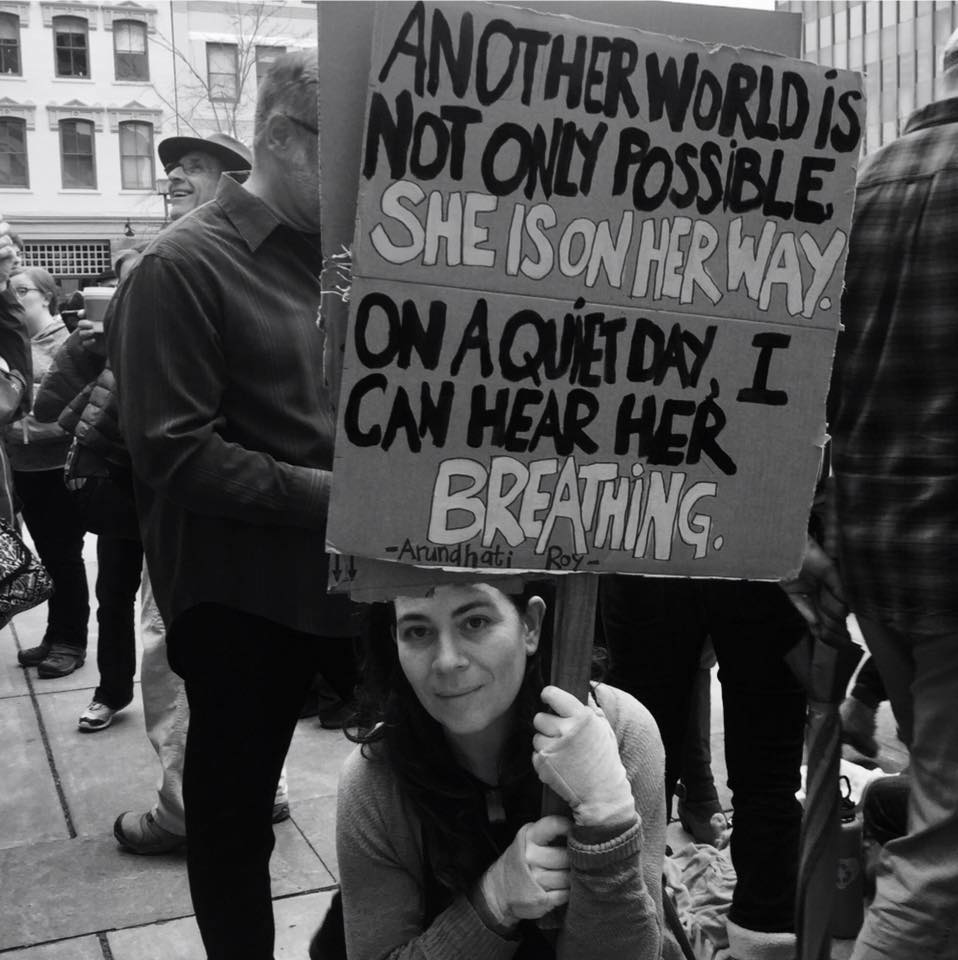 you must understand that one of the central features of that relationship is plunder—the taking from black people in order to empower other people. . . . Plunder is not incidental to who we are; plunder is not incidental to what America is.” —Ta-Nehisi Coates, “
you must understand that one of the central features of that relationship is plunder—the taking from black people in order to empower other people. . . . Plunder is not incidental to who we are; plunder is not incidental to what America is.” —Ta-Nehisi Coates, “ gathering an inventory of interesting sights and experiences, to see is to develop a relationship, to become interdependent, to enter the other’s orbit and become subject to its gravitational force.” —continue reading Ken Sehested’s “
gathering an inventory of interesting sights and experiences, to see is to develop a relationship, to become interdependent, to enter the other’s orbit and become subject to its gravitational force.” —continue reading Ken Sehested’s “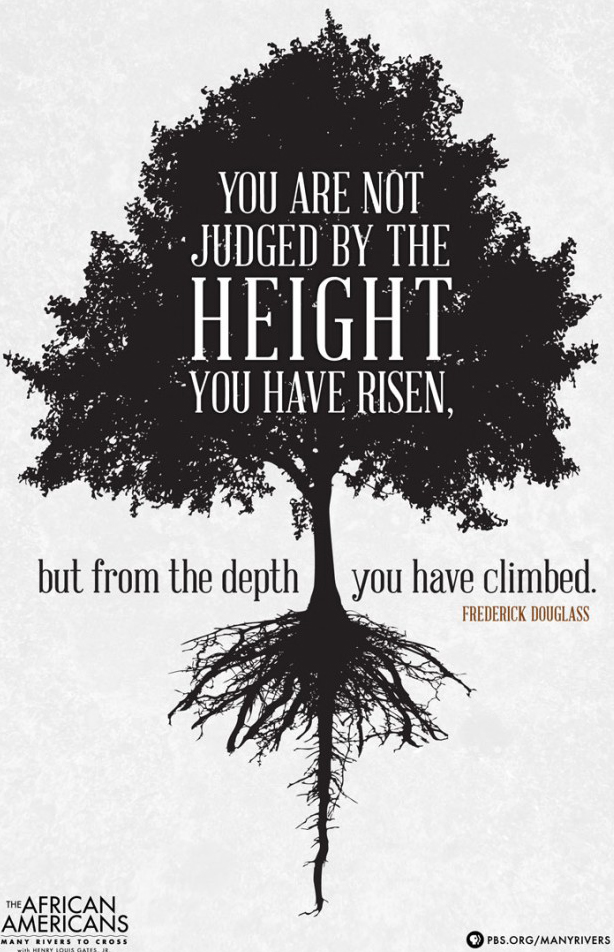 Jesus seemingly says that we are not to resist it; so, it would appear, he commands us to be docile, inert, compliant, to abandon all desire for justice, to allow the oppressor to walk all over us. ‘Turn the other cheek’ is taken to enjoin becoming a doormat for Jesus, to be trampled without protest. . . . Rather than encourage the oppressed to counteract their oppressors, these revolutionary statements have been transformed into injunctions to collude in one's own despoiling.” —Walter Wink, “
Jesus seemingly says that we are not to resist it; so, it would appear, he commands us to be docile, inert, compliant, to abandon all desire for justice, to allow the oppressor to walk all over us. ‘Turn the other cheek’ is taken to enjoin becoming a doormat for Jesus, to be trampled without protest. . . . Rather than encourage the oppressed to counteract their oppressors, these revolutionary statements have been transformed into injunctions to collude in one's own despoiling.” —Walter Wink, “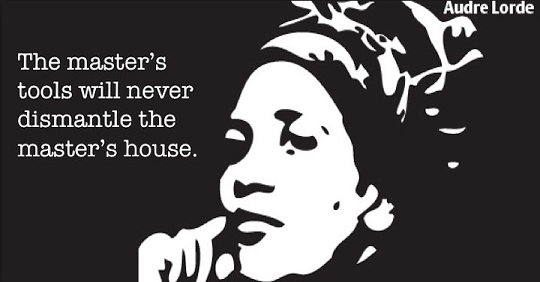 portions cited as “kls.” Don’t let the “copyright” notice keep you from circulating material you find here (and elsewhere in this site). Reprint permission is hereby granted in advance for noncommercial purposes.
portions cited as “kls.” Don’t let the “copyright” notice keep you from circulating material you find here (and elsewhere in this site). Reprint permission is hereby granted in advance for noncommercial purposes.